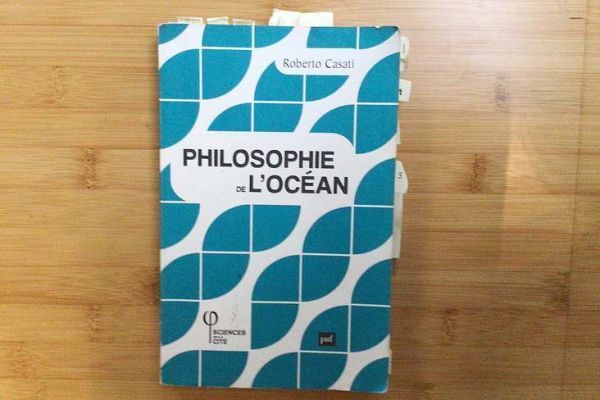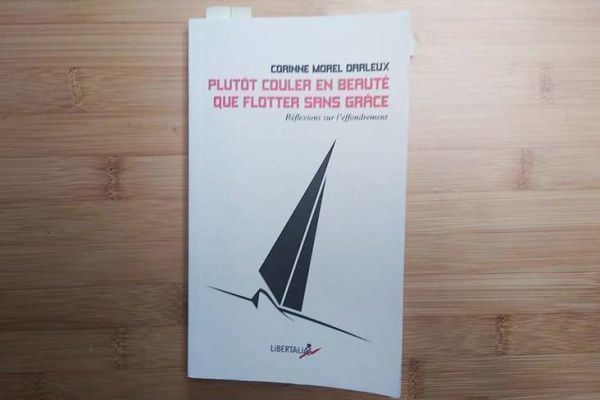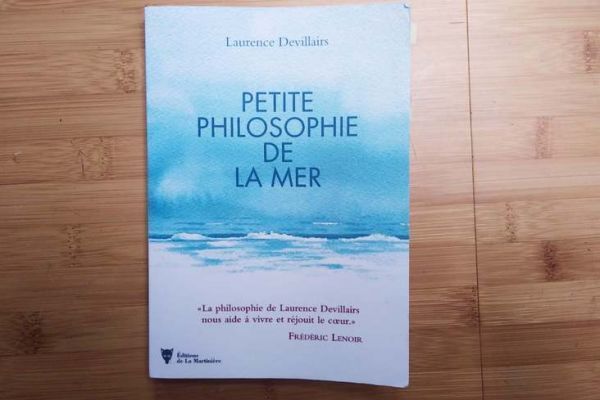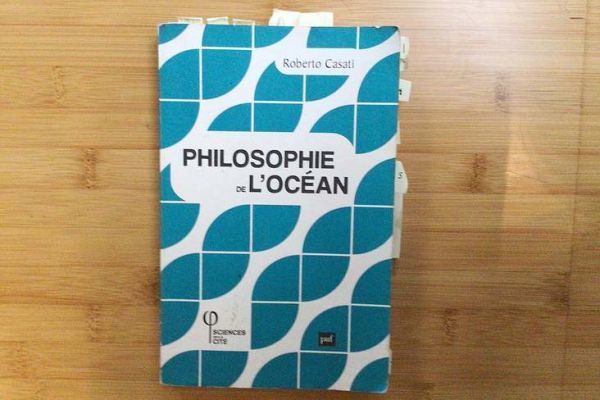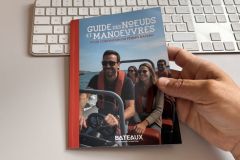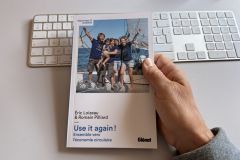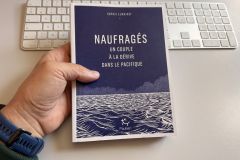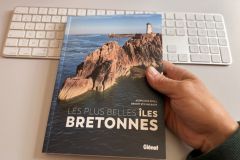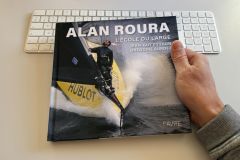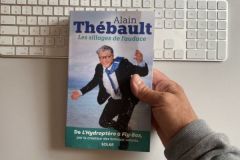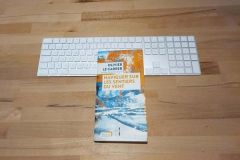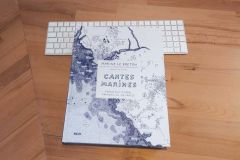In his book Ocean Philosophy published in 2022, Roberto Casati explores the notion of "inhabiting". Since you can't live at sea... what does it mean to live there? And what can this reflection bring to our way of understanding and protecting the sea? This book is a philosophical reflection on the sea and its limits. Does it have any? How are its boundaries established? What is stability? Can we experience the same thing twice at sea? Do we really know the sea? When can we say we really know the sea, or anything at all? Doesn't the sea always have surprises in store for us? This book could even complement existing sailing courses.
Robert Casati is a sailor and a philosopher, and you can feel it in this book!
The boat as a way of living and inhabiting the sea, but not only
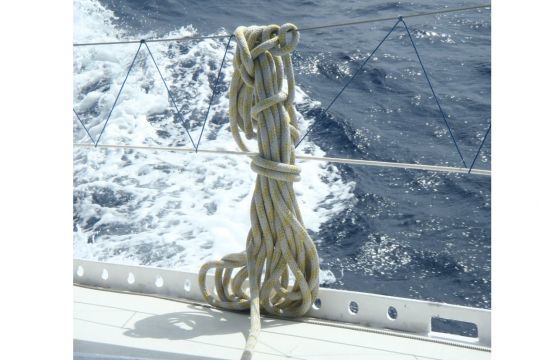
Roberto Casati sees the ship as the only way to live on the sea, and the only way to live in it "becoming an adopted citizen of the sea . He takes this idea a step further when he states that everyone should be a citizen of the sea and/or oceans. Indeed, further on in his book, the author expresses his belief that this would be a long-term way of achieving greater respect for the environment. It would generate a new sense of responsibility, a new approach, a new awareness, leading in turn to greater respect.
Living on a boat is, for him, very inspiring compared to contemporary consumer patterns. Indeed, he emphasizes how, on a boat, reuse - an object can have several uses, meeting different needs - and redundancy - having certain elements duplicated and adjusted to the boat's specific needs in case one breaks - is par for the course. For him, sailing is a way of overcoming single-use and unbridled consumption, while enabling the de-standardization of practices. What's more, living on a boat brings us back to living with the essentials: superfluous objects are in the way, they simply don't belong. This reality leads us to reflect on what is essential for us, what is superfluous, and ultimately, our relationship with consumption. It also brings the notion of individual and collective survival back into focus.
Around the notion of "living", some passages are reminiscent of a sailing manual focused on human beings and living together: How is sailing experienced? What are the things to take into account? What's different from life on land?
This leads to a reflection on human relations and the way they are established on board: organization, roles, rules, food management, time and our relationship to time... so it's not just a question of knowing how to navigate, how to get from point A to point B, it's a question of receiving keys on how to live while sailing. How to inhabit the ship while it's sailing? It's this narrative which, by opposing or highlighting life on land, leads us to reflect on this.
The sea as a resource: Navigation as an element of awareness
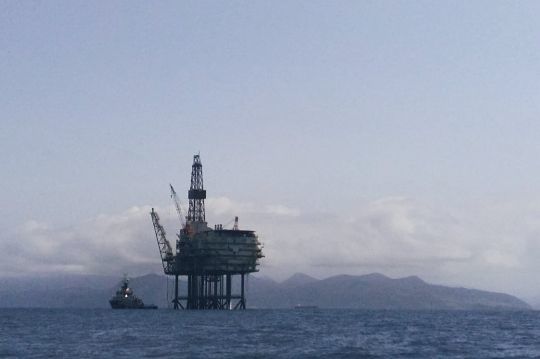
Sailing also means thinking about the sea. And when we think about the sea, we can't help but think about the sea, the ocean, as a resource. Monetize the sea. Monetize areas of the sea. The sea has been monetized on the basis of the resources it can provide. For Roberto Casati, it's important to think about how we use the sea. The way we live with it and consider it. It's important to "Rethinking the sea, [...] de-invisibilizing it" .
Invisibilizing it has enabled the sea to go from being a common good to a commodity, plunderable resource, infinite . Such an observation offers food for thought about the way we view nature, the Living World, and our relationship with it.
"See that the sea isn't just water, it's life, everywhere, at every moment, all you have to do is touch it. Here, the author refers to the luminescence that appears when we touch the sea at night, and the luminous, living plankton let themselves be seen. For him, navigation is a means of restoring the sea's real dimension and reality. For this to be possible, he believes, there has to be a displacement of the sea "from thought to perception, understanding a phenomenon" .. In other words, to stop, observe and feel what's going on around us, in the environment that surrounds us. Here we find Corinne Morel's assertion that to change our perception of the universe in order to protect it, we need to have been affected by it.
In an effort to raise awareness, this shift allows, in a way, the explanations given to come to life and, as a result, gain in meaning.
The maritime environment as a source of observation and philosophical questioning
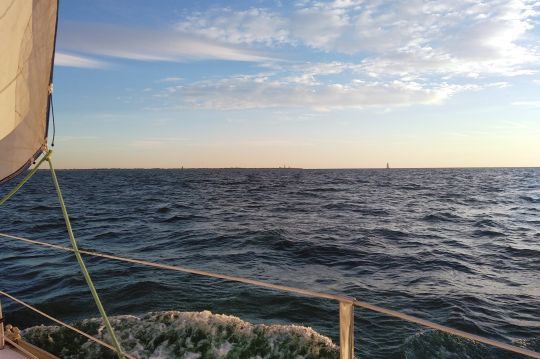
As the author points out, thanks to the contact with nature, the free time for action, the single action periods that demand such concentration that they leave no time or space to think about anything else, sailing is conducive to the development of thought and questioning. What's more, navigation can also lead us to question whether what we see or perceive is true, whether it really is what we think it is, or whether it's an optical or sensory illusion. These situations can lead us to ask ourselves the following questions: What do we know? And what don't we know? How do we construct knowledge? How can we be sure? As Roberto Casati suggests, sailing on the sea leads us, consciously or unconsciously, to ask ourselves a whole series of questions.
"The sea is the element and the place of doubt" and therefore fertile ground for philosophy.
We conclude with this quote from Roberto Casati: "The sea requires a profound transformation of ourselves, which involves exploration and at the end of the journey a new knowledge of ourselves."

 /
/ 